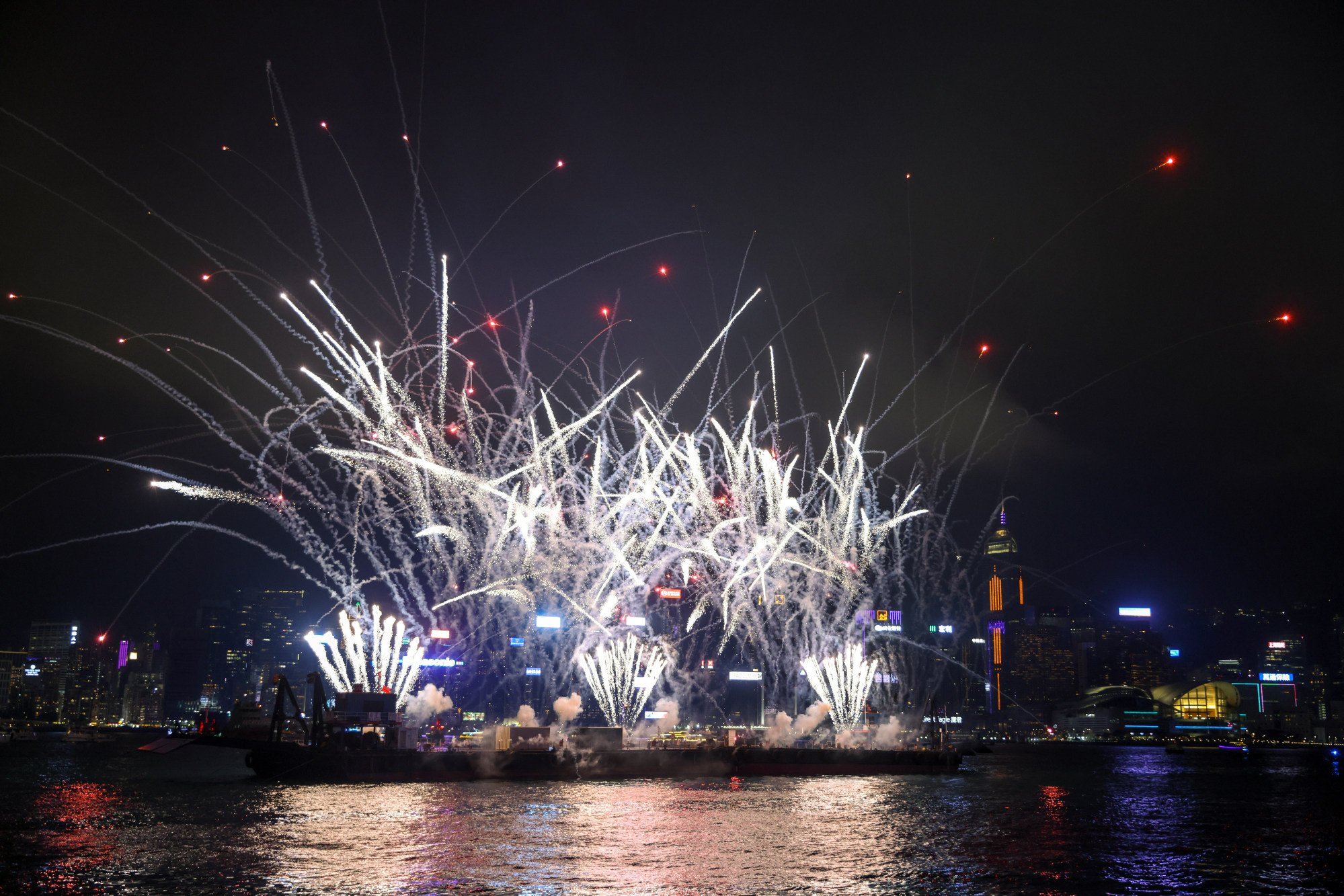“Golden week” fireworks flop shows Hong Kong’s tourism plans lack sparkle
South China Morning Post carries an article about Labour Day fireworks which were played up as a main feature to draw mainland tourists to Hong Kong, Caliber.Az reprints the article.
The opportunity to showcase Hong Kong’s Labour Day fireworks display to the “golden week” crowd flopped. The government was aware that those who came to see the show might be let down because of the bad weather. Tourism minister Kevin Yeung Yun-hung tried to manage expectations and asked tourists to be “mentally prepared … that some performances may not be able to be held”.
The government has been good at managing Hongkongers’ expectations, from signalling that there would be no “sweeteners” in the budget, to efforts to prepare residents for another delay in the waste charging scheme. Managing visitors’ expectations is an interesting concept but perhaps harder to achieve.
The Labour Day fireworks were played up as a main feature to draw mainland tourists to the city. The fireworks ultimately went ahead, the first display of the proposed measures introduced in the latest budget for the Hong Kong Tourism Board to host regular fireworks and drone displays.
However, the show turned out to be a huge letdown, with some mainland visitors taking to social media to express their disappointment. One Xiaohongshu user went as far as saying they felt “scammed” by the quality of the fireworks display. Many complained about only being able to see thick clouds of smoke.
We could blame the weather and credit organisers with putting on a show against the odds. It was better than nothing, right? Alternatively, the government could take this as a learning opportunity.
Setting the first of the monthly pyrotechnics shows for the holiday week around May Day might have been too ambitious. As we have seen with the mess around the waste charging scheme, a trial run might have been in order. That way, officials could have properly managed the expectations of tourists planning to see the show. A scaled-down display would be a disappointment if people had expected the same kind of show the city has put on in the past.
Visitors may well only have seen the city’s previous fireworks displays in photos and videos, so those would have been the images they had in their minds as they waited along Victoria Harbour. If officials had understood this, it would have been obvious that the scale of the display needed to be highlighted.
Remember, Hong Kong put on its “biggest ever” fireworks extravaganza to ring in 2024. Going from that to downsized version virtually guarantees disappointment.
This brings us back to whether it is wise to hold monthly pyrotechnics. The question came up when measures to boost tourism were announced in February with the budget. Not only were there concerns about whether the money could be better spent elsewhere, there were also fears about the displays’ attractiveness and environmental impact.

Would doing something special on a monthly basis have the same impact? If I took my son to his favourite theme park every month, the novelty would certainly wear off. While fireworks do have the ability to wow, a balance must be struck for them to be “special”.
Copying Disneyland’s approach of holding regular fireworks isn’t necessarily wrong, but remember that it also has the Castle of Magical Dreams. It’s not just the backdrop and fireworks but the whole package – an experience the theme park has spent decades creating with frequent fine-tuning. The government must work hard to create this kind of experience, not just a fireworks show, for visitors to Hong Kong.
As for the environmental impact, residents would be more forgiving if the displays were held only for special occasions. Labour Day is not a celebration on a par with ringing in the new year, the Lunar New Year or National Day.
These shows release a variety of contaminants into the air, and our reputation – as well as the environment – suffers with a disappointing fireworks display.
Such displays need to be big and spectacular – and only happen occasionally. Turning them into something mundane is not how to make Hong Kong an attractive destination for tourists.
The government must go back to the drawing board. Whether that means doing carrying out extensive studies, running focus groups or taking criticism from the public seriously, it must do so before rolling out new measures. Otherwise, these ideas are destined to be a damp squib.








